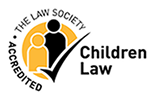Living together (cohabitation) is something that more people than ever are choosing to do, but unfortunately they tend not to think about the potential financial and legal consequences if something goes wrong. We all want our relationships to run smoothly but sometimes things don’t go as we would like, and this is why being aware of your legal position is recommended.
It is a myth that when you live with someone you automatically get rights as a ‘common law’ husband or wife. Common law marriage in the UK has never existed.
In the worst cases, people can be left homeless when a relationship breaks down, while others will also be devastated to find that they get nothing when the home they have been living in is sold.
For others, the main problem is that they have fewer legal rights with their children than they expected. Another issue is that when someone in a cohabiting relationship dies, their partner can be left with nothing – even if a Will has been made.
Although Court Proceedings can address some of these situations, the Court’s powers are limited, often vague and uncertain. All too often, this can result in an unsatisfactory outcome.
Protect your rights
Whether you are about to start living with someone or you have been doing that for some time, we can give you advice to help you protect yourself against the sort of situations mentioned above.
This can include drawing up one or more of these legal documents:
This will record your intentions in relation to property and other assets should the relationship end. It can address whether the house would be sold, who would care for the children and issues such as maintenance and ownership of household items. It’s a legally binding contract that remains enforceable so long as the couple remains unmarried.
- Parental Responsibility Agreement
This will give you legal rights and responsibilities for your child.
This is usually prepared when partners buy a house and the Declaration of Trust determines what happens to property if your relationship ends or one of you dies.
If you don’t make a Will there is the risk that you will die ‘intestate’ and that some or all of your money, investments, possessions or property will either go to the government or to family members whom you may not wish to receive them. This is especially true for people who live together rather than get married. Making a Will means that this unfairness can be avoided and also gives you the opportunity to express your preferences for matters such as who should handle your affairs after your death.
For further information on Declaration of Trusts and Wills please contact our Wills, Trusts & Probate team.
















